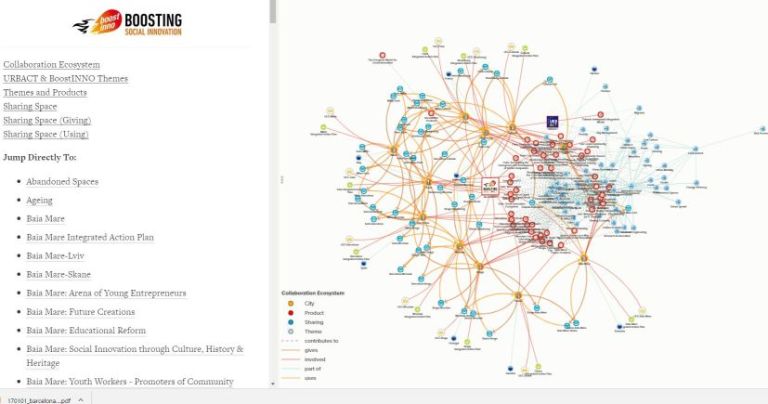How can cities implement best practices for leveraging the power of citizen-driven innovation? The BoostInno network has the answers.
- 11 August 2020
To be able to innovate, a city should start by innovating in its own administration.
A long-held assumption in urban policy is that citizens accept whatever the officials decide, plan, and build. What urban planners are discovering is that the opposite is true: that more often than not, citizens drive urban change. In fact, when such citizen-driven change doesn’t happen, cities find themselves at a disadvantage.
The URBACT action planning network BOOSTINNO project helped cities better leverage the power of citizen-driven change. Working in both large and medium-sized cities across Europe, the project set out to help municipalities better understand social innovation and implement changes to encourage citizen innovation. The result has been a fundamental change in how these cities are managed.
Brokers of social innovation
The project was a partnership between 10 cities that worked together to develop best practices in planning, financing, developing, and managing social innovation. Participating cities were Braga, Portugal; Baia Mare, Romania; Barcelona, Spain; Gdansk and Wroclaw, Poland; Milan, Italy; Paris and Strasbourg, France; and Skane County in Sweden.
The project’s main goal was to enable public administrations to become brokers of social innovation. To do this, it developed tailored plans for each participating city. This involved helping identify local needs and challenges and then developing objectives for the city.
For example, in Baia Mare, the city has been working on increasing citizen empowerment. To support this, its local integrated action plan focuses on how to get citizens more involved in the development of their city and consolidate this process through different activities and tools.
During the course of the project, the city took major steps towards more open, user-friendly public services by launching a platform that allows citizens to identify local needs and help find solutions for them.
Sharing best practices
In addition to the plans, the project produced a comprehensive summary of lessons learnt and best practices in how cities can use social innovation to support social sustainability.
For example, Gdansk worked with over 120 stakeholders to develop a model on how to socially integrate migrants and refugees. This model was shared with other cities.
The project was implemented as part of URBACT, the European Territorial Cooperation programme that aims to foster sustainable integrated urban development in cities across Europe. It uses resources and know-how to strengthen cities’ capacity to make improvements in four areas: governance, environment, inclusion and economy.
Total investment and EU funding
Total investment for the project “BoostInno – Boosting Social Innovation” is EUR 744 419, with the EU’s European Regional Development Fund contributing EUR 574 708 through the “URBACT III” Operational Programme for the 2014-2020 programming period. The investment falls under the priority “Democratic Change”.

